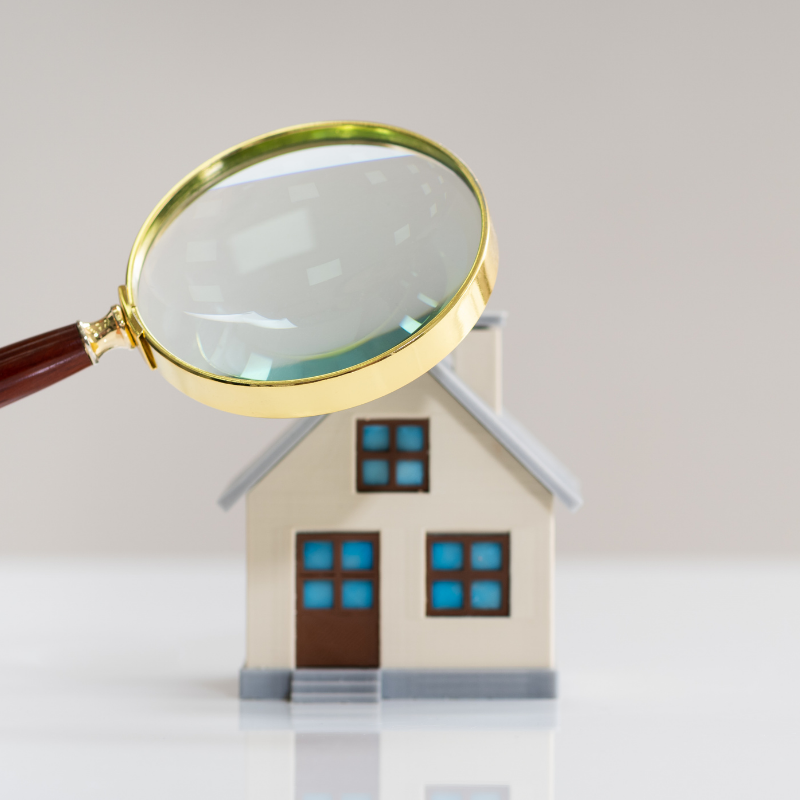
If you need a mortgage to buy the home, your mortgage lender will require a home appraisal before you can close on it. The appraisal is completed by a third-party appraiser to cross check the value of the house to protect the bank’s interest. The appraiser will look at many different factors. Most of the appraisal is based on objective factors such as square footage, number of bedrooms and bathrooms, and home style. The appraiser has the right to site repairs or inspections as part of their appraisal. Though this can happen with all loan types, it is most common with FHA and VA loans.
The home appraiser will take photos of every room, the exterior, and the garage. They will note the home’s upgrades, condition, and amenities. If there are any damages to note they will provide that information to the mortgage lender. Then they will compare the home to similar properties that had sold in the last 180 days. They are unable to compare it to homes that are active or pending in the market. In this article, we will go over the details of what a home appraiser looks for when appraising a home.
The Home’s Interior and Condition.png?width=250&name=home%20appraisal%20blog%20(1).png)
A home appraiser will not care if the home is clean or not. However, they will log if the home has been neglected. This means they will note damage to the walls, floors, carpeting, windows, appliances, or doors. They are looking for signs of inhabitability.
They will also note if the home has any maintenance issues. The appraiser will note other details about the home as well such as its foundation type and construction materials.
Home Design
If the home’s interior is outdated that can affect the appraisal. An outdated home will not favor well such as a 1940 home that has never been updated. This is due to the appraiser considering how an outdated interior reduces the home’s overall appeal in the market.
Home’s Exterior .png?width=250&name=home%20appraisal%20blog%20(2).png)
The appraiser will look at the home’s roof, chimney, porch, stairs, deck, siding, garage, and other exterior features. What the appraiser is looking for is structural damage.
They can note factors such as cracks, water damage, missing roof shingles, and sunken decks.
Neighborhood
Where the home is located is a major factor in determining the appraisal value. If the home is situated in highly sought-after area, especially with a low crime rate, then that will heavily impact the appraisal. The appraiser will look at how close the home is to important infrastructure such as schools, police stations, hospitals, and fire stations. They will assess if the local schools are highly desirable. The appraiser will consider the types of buildings near the home such as commercial buildings and apartments.
Age
An appraiser will typically value a newly constructed home more than an older home. However, an old home that is well maintained can have a favorable appraisal. Especially if that home is in a desirable area. A home built just this year still must be appraised the same detail as a home built 70 years ago.
Water Damage
Water damage has its own category since it is a common issue and can easily lead to an unfavorable home appraisal. The appraiser will note any signs of water damage such as rot, mold, and mildew. They will log any water stains in the home. They will note roof water leaks, plumbing issues, and water collected in the basement.
Home Size
Since part of the home appraisal is the appraiser looking at how much similar homes in the area have sold for, the appraiser considers the home’s size, lot size, and total bedroom and bathroom count. They will also note the size of the garage.
Home Renovations and Updates 
The appraiser will look for updates to the home. This could range from minor updates such as new energy efficient appliances to large renovations to rooms such as to the kitchen. They will look for any updates to the heating and cooling system.
The appraiser will note home additions such as fireplaces, garages, patios, porches, and fences. New flooring, siding, roof, windows, and doors can affect the home appraisal.
Pests
If pests have infested the home, it can negatively impact the home appraisal. The home appraiser will check for any signs of infestation. The areas they will check are windows and floors. They are not required to perform a complete pest inspection.
Home Safety
Certain home loans require the home to have safety features in place. For example, if the home buyer has an FHA loan, the lender will require the appraiser to check every level of the home for smoke detectors.
Conclusion
After the appraiser’s visit, they must put a report together comparing the property to usually three similar properties. In the report the appraiser gives their value of the home. The appraiser will adjust the value accordingly for condition. It is up to each individual appraiser to decide how much or how little they will adjust.
After the appraisal report is turned in to the bank, the report must go through underwriting. During this process the lender can request more information from the appraiser or add loan conditions. If the appraisal does not come in at value or higher, there are possible steps to change it, but it’s different for each lender. Having a great realtor to navigate you through this process is important. At The Young Team, we have helped hundreds of Northeast Ohio families buy their dream homes.
About the Author
As a Young Team agent, Bobby is focused on providing an extraordinary client experience. His goal is to understand your real estate needs and turn them into reality. With his intimate understanding of the local Ohio housing markets and ability to analyze current real estate trends, Bobby is an expert resource for all your real estate needs. Looking to sell your home? Partner with Bobby to maximize your home sale.


2020 © The Young Team | Keller Williams Greater Metropolitan
Each office is independently owned and operated.
The Young Team